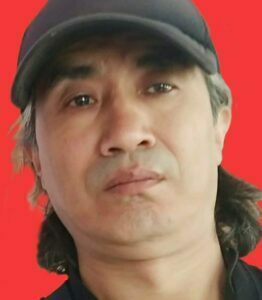There are practical and idealistic ways of looking or responding to mishaps and tragedy faced by media persons. However, responding to adverse situations purely with humanism from within can be considered a virtue.

By Sanjoo Thangjam
Those of us working in the news media are familiar with issues being confronted at the professional front. Besides, we are also familiar with bigger issues like censorship, political pressure, intimidation, job insecurity and attacks on news media persons by miscreants.
While many media persons and journalists around the world and our own state Manipur take a great deal of risks while performing their daily jobs, not all may not be availing given facilities like pension and insurance to cover accidental death, disablement, sickness and accident medical expenses etc. In reality, journalists have to take risks even if they are vulnerable to disasters and accidents.
According to International Federation of Red Cross and Red Crescent Societies (IFRC) is the world’s largest humanitarian network, disasters have been defined as “serious disruptions to the functioning of a community that exceed its capacity to cope using its own resources. Disasters can be caused by natural, man-made and technological hazards, as well as various factors that influence the exposure and vulnerability of a community”.
As for accidents, we all are aware about the issue and the expedience of unintentional mishap and unpleasant consequences. I began pondering over this issue for quite some years now but could not motivate myself to write down few lines on these issues. However, I was suddenly propelled into thinking about this when a journalist in our state capital Imphal met with an accident on April 6 this month.
Priyo Achom, a journalist and a member of the All Manipur Working Journalists Union met with a road accident. The moment I heard the news and his consequent admission to the emergency ward of the Regional Institute of Medical Science (RIMS), I immediately contacted the director who happens to be someone I am acquainted with. On that night, I kept communicating with RIMS director who kept me updated about the condition of Priyo Achom via the CMO Dr Dinesh who was on duty from 1 am till 3 am in the wee hours. I was later told that Priyo was discharged as the injury he sustained was considered minor. Later, I expressed my gratitude to the RIMS director and Priyo himself thanked me for the little help I rendered over the phone.
This particular episode shifted my focus from all the talks about the safety and security of journalists and official and non-official insurance covers to another idea related to basic humanism that has been often forgotten in our daily professional life. Yes, it is imperative for the official authorities like governments and also other philanthropic organizations to consider ways in which they could mitigate the problems faced by journalists and associated hazards like accidents and how they could render required help. However, it would be all the more better if professionals, be they journalists, bureaucrats or medical practitioners around the world to listen to their own voice from within and extend the much needed help without having to wait for big unions, organizations or even governments respond to immediate problems.
This basically depends on how we respond to happenings around us. When a person from media fraternity meets with an accident, his close associates and his own organizations would first respond to the phenomenon purely from a humanitarian approach. Some may consider this as an idealistic way of looking or responding to mishaps and tragedy but it also shows how we can revive humanism from within.
(The writer is a journalist based in Imphal)
